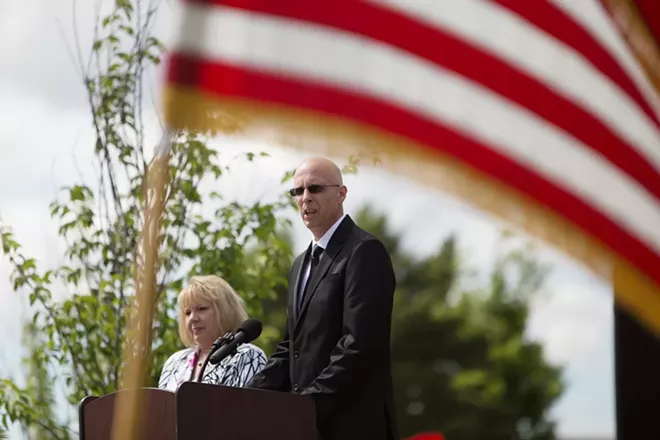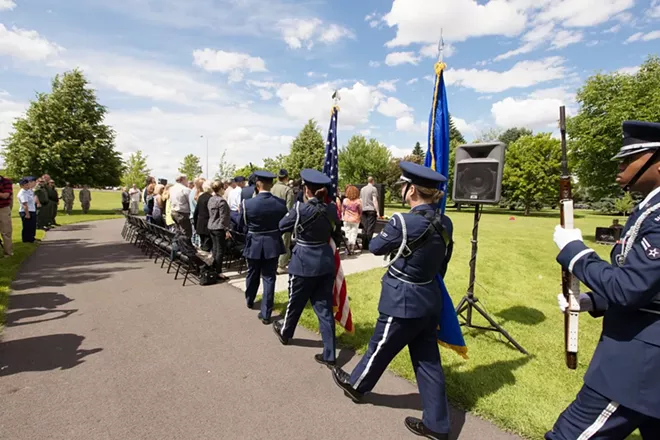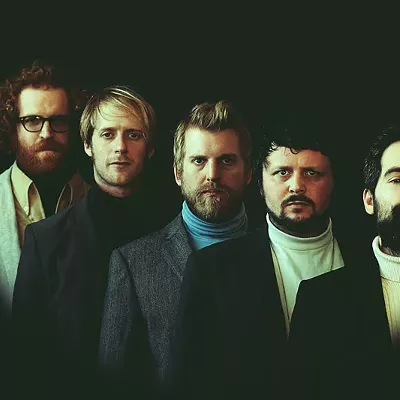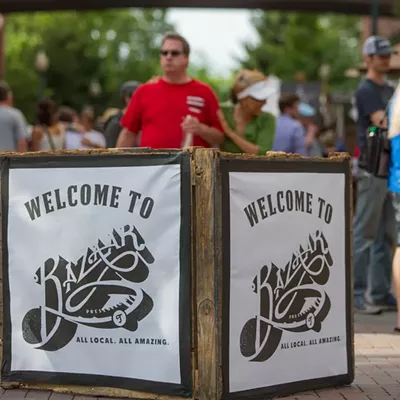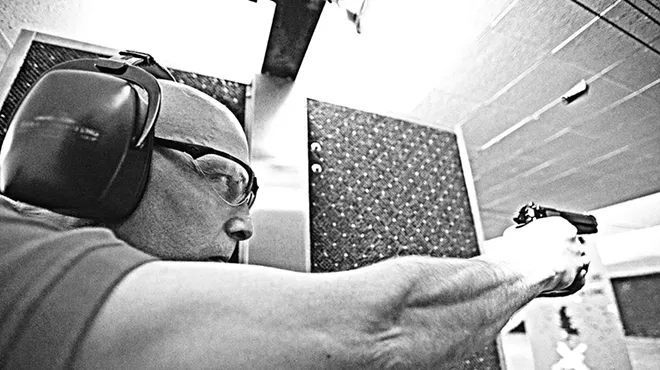Friday, June 20, 2014
PHOTOS: Fairchild Air Force Base Memorial
Twenty years ago to the date, on a warm, cloudless summer day, a disgruntled former airman returned to Fairchild Air Force Base, armed with an assault rifle and a 75-round drum. He killed four people and one woman's unborn child and injured 22 others at the base hospital before he was shot to death by a military police officer. In this week's cover story, we wrote about his rampage and the survivors — many of whom suffered from trauma for years.
This afternoon, dozens of people gathered at the base's Memorial Park to honor the victims of the 1994 shooting. The event featured retired Staff Sgt. Andy Brown, the former security policeman who shot and killed the gunman.
In an emotional speech, Brown, dressed in a black suit and tie, discussed his role ending the rampage and his struggles with post-traumatic stress disorder.
"I stuffed my feelings, hid my symptoms and pressed on with my duty," Brown said. "Almost everything I saw invoked memories of the incident, and eventually, even a beautiful, cloudless summer day caused me anxiety."
With his wife's encouragement and help from Spokane Veterans Affairs, Brown has since recovered, but his journey hasn't been easy. Here's an excerpt from Brown's remarks:
Some might assume that the people who experienced trauma that day might just as easily return to normal. But I've been in contact with many of the people that were there that day — doctors, nurses, med techs, firefighters, cops, and survivors. Few, if any, escaped mental trauma and in varying degrees, that trauma is still with them today. I won't speak for them today, but I will tell you about my experience. I'd always taken my role as a defender seriously. I prepared for a lethal force encounter by practicing a technique known as "mental rehearsal." I would frequently visualize different scenarios where I would shoot to stop a threat. But my scenarios were flawed in that I never imagined anyone besides the perpetrator getting hurt. So I wasn't prepared for so many people being wounded or killed, people that I had a duty to protect. I reluctantly accepted awards for heroism. Though they were well-intentioned, the awards only served to remind me of the wounded and the dead and the grieving families. I didn't see myself as a hero or a life-saver.You can read more about Brown's story and his recovery here or in this week's issue of the Inlander.
[...]
I may never be the person I was before the shooting, but in some ways, I am stronger for it and I have found peace. I haven't lost the habits that I developed as a patrolman. I'm still vigilant for evil and ready to stand in its way when it threatens innocents. The difference is there was a time where all I could see was the darkness, but today, I practice a balanced awareness. I see the beauty in the world while I'm watching for danger. Today I can once again appreciate the simple wonder of a cloudless summer day.
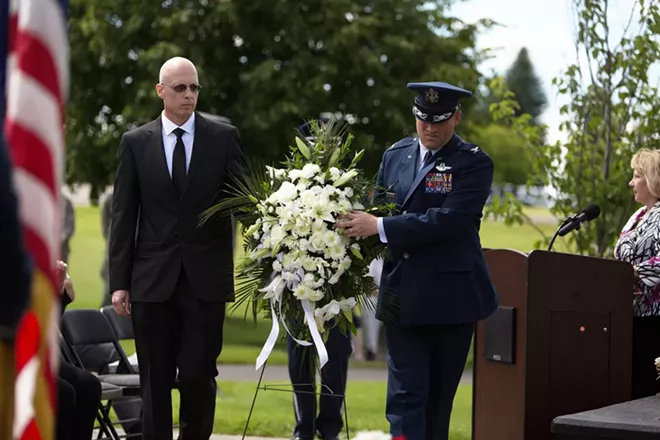
Young Kwak
Brown, left, and Colonel Brian Newberry carry a wreath to the memorial honoring the victims of the Fairchild hospital shooting.
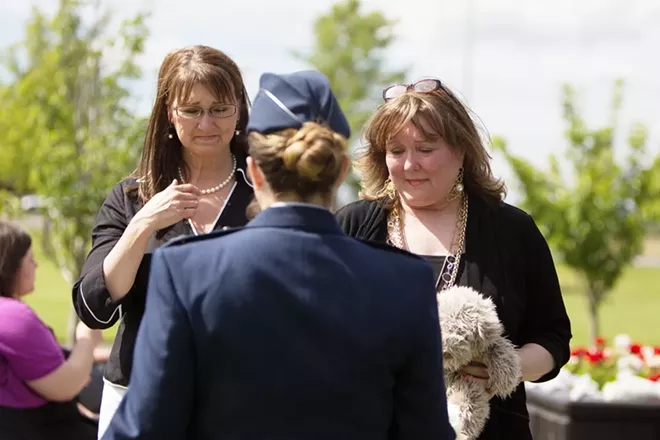
Young Kwak
Lori Payton, left, and Roni Uyeda accept a white rose from Captain Paula Clark on behalf of Michelle Sigman's unborn daughter, Taylor, who died in the womb after her mother was injured during the shooting. Payton and Uyeda are daughters of Eva Walch, who was wounded while protecting Sigman's son, James, from the gunman.
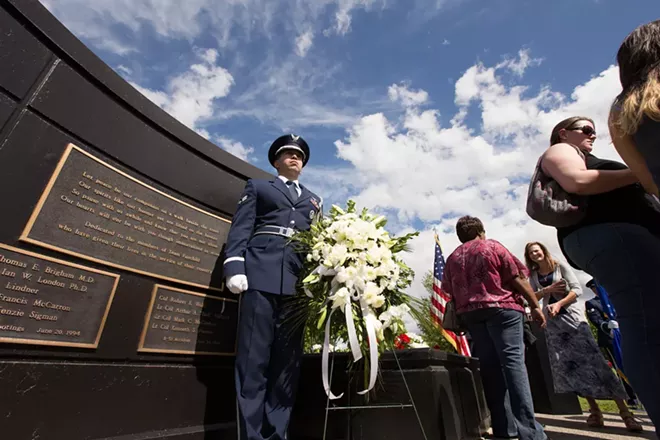
Young Kwak
An airman stands next to a memorial. The epitaph reads: "Let peace be our companion on a walk beside the trees. Our spirits like our banner yet are lifted on the breeze. So pause with us awhile and know that you are not alone. Our hearts will e'er be with you though immortalized in stone."

